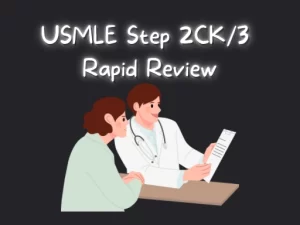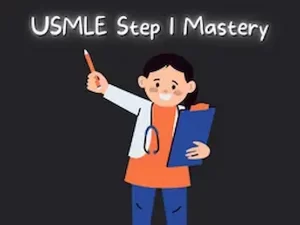Residency Match Day is a pivotal moment for medical students, particularly for IMGs (International Medical Graduates). Securing a spot in a residency program is not just about luck, but about preparation, strategy, and resilience. Residency Match Day success tips can help guide you through the process, focusing on crucial aspects that make a difference. It’s vital to understand the difference between the Match vs SOAP for IMGs, which may impact your approach. Whether you’re applying for the first time or reapplying, understanding what factors contribute to success can set you apart. From exam scores to letters of recommendation, each step matters. In this blog, we’ll break down key factors that contribute to successful match day outcomes.
Residency Match Formula: Key Variables for Success
There are several Residency Match Day success tips that can increase your chances of securing a residency position. Key variables include your exam scores, experiences, letters of recommendation, and how well you fit with the residency program’s needs. By understanding how each of these factors plays a role, you can focus on strengthening areas that are most important for a successful match.
Exam Scores
Preparing for Residency Match Day begins with excelling in the necessary exams, particularly USMLE Step 1 and Step 2. Your Step 3 score can also have a significant impact. Programs often look for candidates with strong test scores, as they reflect clinical knowledge and the ability to handle the rigors of residency. High scores can set you apart from other applicants, especially for competitive specialties. Residency Match Day success tips suggest focusing on Step 3 preparation early to ensure a competitive score.
YOG
Your Year of Graduation (YOG) can play a significant role in your residency match process. Many programs give preference to recent graduates, as they are considered more current in medical knowledge and clinical skills. However, older graduates should not be discouraged. Residency Match Day success tips for older graduates include showcasing ongoing education, clinical work, and research activities, which can demonstrate that you’ve maintained your knowledge and skills. If you’ve taken time off for personal reasons, be sure to address it honestly in your application.
CV (Experiences – Observership/Research/Volunteer)
A robust CV is a critical element in the residency application process. Residency Match Day success tips emphasize the importance of showcasing your observerships, research, and volunteer experiences. These activities show your dedication to medicine and your willingness to learn. Including details about hands-on experience in clinical settings or research contributions will strengthen your application and demonstrate that you are ready to contribute to a residency program. Additionally, volunteer work can reflect your commitment to community service and your desire to grow as a compassionate physician.
Letters of Recommendation
One of the most crucial aspects of your application is your letters of recommendation. Residency Match Day success tips stress the importance of obtaining strong letters from respected professionals who know you well and can speak to your abilities, work ethic, and potential as a physician. Aim for a balance of academic and clinical letters. A great letter can make a significant difference, especially in a competitive specialty. Be sure to provide your recommenders with ample time and relevant information to write a compelling letter.
Contacts
Networking is key to residency success. Residency Match Day success tips emphasize the importance of building relationships with faculty and residents. Your mentors can offer invaluable advice, share opportunities, and even provide strong letters of recommendation. Attending conferences, seminars, and other professional events allows you to make meaningful connections in the field. Having the right contacts can increase your chances of securing interviews and finding a good fit for your residency training.
Location
Your preference for location may affect your match. Many applicants focus on top-tier programs in big cities, but Preparing for Residency Match Day requires you to think strategically about geographic location. Some programs outside of major cities or in less competitive areas may offer better opportunities. Consider factors such as work-life balance, family, cost of living, and lifestyle when selecting programs. By being flexible about location, you may increase your chances of matching.
Visa
For IMGs, visa status can be a significant factor in the match process. Residency Match Day success tips for IMGs include thoroughly understanding the visa requirements for your desired residency program. Many programs only sponsor specific visa types, such as J-1 or H-1B. It’s essential to be proactive about visa issues early in your application process. Contact the program coordinators to clarify visa requirements and ensure you are prepared for potential challenges.
Program Selection
Selecting the right programs to apply to is a key decision in the residency match process. Residency Match Day success tips suggest focusing on programs that align with your strengths, interests, and long-term goals. Researching program culture, success rates, and fellowship opportunities can help you narrow down your list. Apply to a range of programs, including reach programs, competitive programs, and those where you’re more likely to match.
Communication
Clear and professional communication is crucial throughout the residency match process. Residency Match Day success tips emphasize the importance of timely and respectful communication with residency programs. Be prompt in responding to interview invitations, follow up after interviews, and maintain professionalism in all your correspondence. Good communication shows your commitment and enthusiasm, which are important traits for residency directors.
Interview
Interviews are your chance to show the program what you can bring to their team. Residency Match Day success tips for interviews include preparing thoroughly by researching the program, practicing your responses, and showing genuine interest. Be ready to answer questions about your experience, motivations, and how you fit with the program’s goals. Your interview performance can be the deciding factor in securing a match.
Strategies to Secure Your Desired Residency Position
To successfully navigate Residency Match Day success tips, make sure you have a clear strategy. Focus on excelling in interviews, refining your CV, and selecting the right programs. It’s also important to maintain a strong network and continually strengthen your clinical skills and knowledge. By being proactive and well-prepared, you can maximize your chances of securing your desired residency position.
Strengthen Your ERAS Application
The ERAS application is your primary tool in the residency match process. Residency Match Day success tips include ensuring your ERAS application is thorough and professional. Pay close attention to your personal statement, CV, and letters of recommendation. Make sure your application reflects your strengths and motivations for pursuing residency. A polished, complete application can significantly improve your chances of being invited to interviews.
Ace Your USMLE Exams
A strong USMLE score is one of the most important components of your application. Residency Match Day success tips recommend preparing extensively for the USMLE exams, especially Step 1, Step 2, and Step 3. These exams reflect your medical knowledge and readiness for residency. The higher your score, the more competitive you will be. Proper study planning and utilizing available resources can help you excel on these exams.
Research and Target the Right Programs
Targeting the right residency programs is essential. Residency Match Day success tips involve doing thorough research to understand the strengths and opportunities offered by different programs. Look at factors such as the program’s curriculum, faculty, fellowship opportunities, and geographic location. Targeting programs that align with your goals and preferences increases your chances of matching.
Excel in Interviews
The residency interview is your opportunity to demonstrate your qualifications, enthusiasm, and fit for the program. Residency Match Day success tips suggest practicing common interview questions and preparing your own questions for the program. Be confident, but also humble, and demonstrate your genuine interest in the program. Good interpersonal skills and professionalism can make a significant difference.
Network with Faculty and Residents
Networking with faculty and residents is essential for success. Residency Match Day success tips highlight the importance of building relationships that can offer guidance, recommendations, and opportunities. Faculty members and residents can also provide insight into the program’s culture and expectations. The stronger your network, the more likely you are to receive valuable support throughout the match process.
Have a Strategic Rank Order List
Creating a strategic rank order list is an important part of Residency Match Day success tips. Rank programs based on your preferences and the likelihood of matching. Be realistic but also consider your long-term goals. The rank order list is critical in determining where you match, so take the time to carefully evaluate each program’s fit for you.
Prepare for the Possibility of SOAP
Not every applicant matches during the initial match. Match vs SOAP for IMGs is a crucial concept to understand. SOAP (Supplemental Offer and Acceptance Program) allows unmatched applicants to apply for open positions after the match results are released. Residency Match Day success tips recommend preparing for this possibility by understanding how SOAP works and staying flexible about program options.
Tips for Success and Navigating Your Journey
- Focus on Your Strengths: Highlight your experiences and skills that align with the residency programs you’re applying to.
- Prepare Early: Start your application process well in advance and give yourself ample time to study for exams.
- Networking Matters: Establish connections with faculty, residents, and mentors who can provide valuable insights and recommendations.
- Stay Organized: Keep track of deadlines and program requirements to avoid last-minute stress.
- Maintain a Positive Attitude: Whether you’re facing challenges in the match or celebrating your success, staying positive is key.
How USMLE Strike Helps You Succeed on Residency Match Day
USMLE Strike, led by Dr. Apurva Poapt, is dedicated to helping medical graduates maximize their success on Residency Match Day. With expert guidance, personalized mentorship, and strategic planning, USMLE Strike ensures that candidates stand out in the competitive residency selection process. From CV enhancement, interview coaching, and application strategies to strong ERAS and personal statement support, every aspect is meticulously covered. Dr. Apurva Poapt’s extensive experience and tailored approach empower applicants to achieve their dream residency placements. With USMLE Strike, you gain the confidence, knowledge, and skills needed to excel on Match Day and secure the best opportunities.
Conclusion
Residency Match Day success tips are all about preparation and strategy. By focusing on exam preparation, securing strong letters of recommendation, and selecting the right programs, you can significantly increase your chances of matching. Don’t forget to network with faculty, research programs, and maintain a well-organized application. Understanding the nuances of Match vs SOAP for IMGs can help you navigate the process if things don’t go as planned. Stay persistent, stay focused, and remember that each step is part of the journey toward securing a residency spot.





